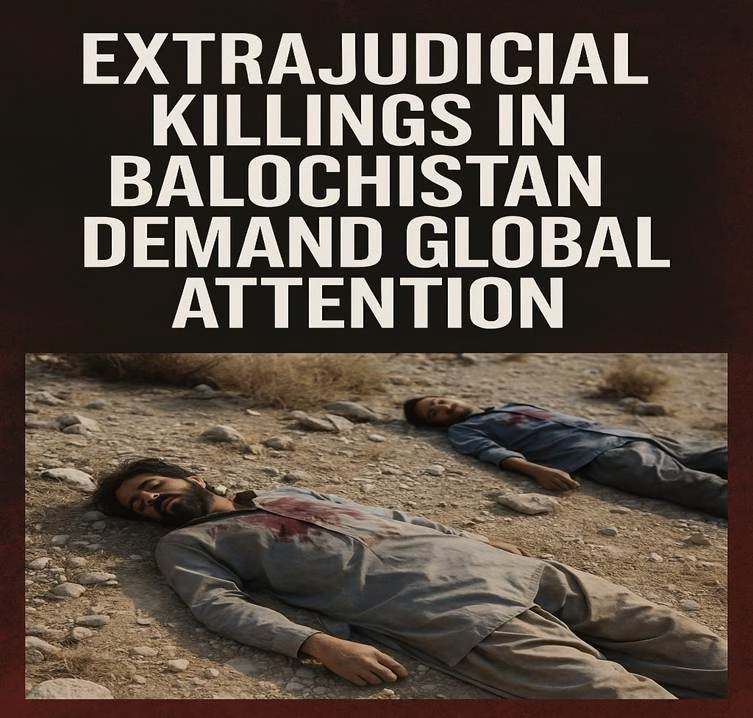
For too long, India has maintained an ambiguous silence on Balochistan—a land ravaged by military occupation, enforced disappearances, and brutal repression at the hands of the Pakistani state. This silence is no longer strategic. It is fast becoming complicity.
The Baloch people have been waging a protracted, deeply rooted struggle for dignity, autonomy, and survival. For decades, they have been subjected to extrajudicial killings, torture, and abductions by Pakistan’s security apparatus, primarily the Inter-Services Intelligence (ISI) and Military Intelligence (MI). The international community has offered little more than rhetorical concern, while Pakistan continues to violate every conceivable norm of human rights in the province. In this context, India’s muted stance raises difficult questions: what does it mean for a democracy like India to turn away from one of the worst humanitarian crises in its neighborhood?
In August 2016, Prime Minister Narendra Modi broke tradition by mentioning Balochistan in his Independence Day address from the Red Fort. For a moment, it seemed India had finally found the courage to bring Balochistan into the global conversation. But that moment was fleeting. Since then, New Delhi has reverted to its default position—calculated restraint, buried under layers of strategic ambiguity. Meanwhile, the Baloch continue to disappear—one after another, student after student, activist after activist.
This is not a marginal issue. Nor is it just another item in the long list of Indo-Pak grievances. The situation in Balochistan calls for a moral stance as much as a geopolitical one. India cannot claim to champion democracy, pluralism, and human rights globally while ignoring the cries of the Baloch people. India speaks up on Tibet, has taken positions on Palestine, and offers refuge to persecuted minorities from across South Asia. Why then does Balochistan remain taboo?
The answer may lie in the fear of international backlash, or the desire to avoid further antagonizing Pakistan. But this risk aversion is no longer tenable. Balochistan is not just Pakistan’s internal matter—it is a regional and international crisis. Reports from international watchdogs, journalists, and Baloch human rights organizations have consistently documented patterns of state violence, cultural erasure, and demographic engineering in the region. The death of Nawab Akbar Bugti, the long marches led by Mama Qadeer Baloch, and the ongoing protests by the families of the disappeared—these are not isolated incidents. They are evidence of a long, painful resistance that deserves recognition.
Furthermore, the rise of jihadist groups in Balochistan, including the Islamic State Khorasan Province (ISKP), adds another layer of urgency. If India is truly concerned about regional security, it cannot ignore how the Pakistani state’s repression in Balochistan is fueling extremism. The same province that anchors the China-Pakistan Economic Corridor (CPEC) has now become a fertile ground for radicalization, disenfranchisement, and instability. That has implications far beyond Pakistan’s borders.
India does not need to militarize its approach to Balochistan. But it must politicize it. It must raise the issue at the United Nations, in bilateral and multilateral forums, and through civil society channels. It must open its platforms to Baloch activists, scholars, and journalists. Doing so would not only challenge Pakistan’s false narrative of “internal affairs” but also align India’s foreign policy with its professed values.
There is a strategic cost to silence. And there is a moral cost to indifference. If India continues to look away, it strengthens the architecture of impunity in Pakistan and weakens its own credibility as a voice for justice and democracy in the Global South. The time for hesitation is over.
The question is not whether India has the right to speak on Balochistan. The question is whether it still has the moral clarity to do so. If India wants to be taken seriously as a rising power with democratic values, it must first prove that those values are not selective.
Silence, in this case, is not neutrality. It is surrender.
Subscribe to Our Newsletter
Get the latest CounterCurrents updates delivered straight to your inbox.
Ashish Singh has finished his Ph.D. coursework in political science from the NRU-HSE, Moscow, Russia. He has previously studied at Oslo Metropolitan University, Norway; and TISS, Mumbai.














































